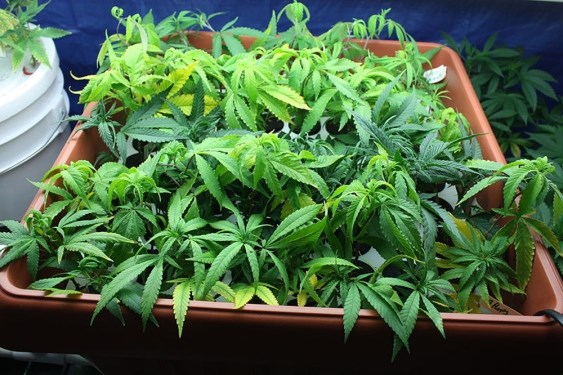How old should people be to legally smoke marijuana? Where should people be able to buy pot? What should the government do to address drug-impaired driving?
These are some of the questions the city is pondering in preparation for the new federal Cannabis Act, which will make the production, sale and possession of non-medical cannabis legal across Canada by next summer.
“I think council wants to actually approach the issue of legalization of cannabis very similar to how liquor sales and liquor consumption are controlled in the city. In the same way the city going to deal with applications for beer and wine stores, or even in terms of how things are consumed in the public, at least that generally seemed to be where council’s direction was that would be the closest alignment of how we’d want to regulate it in New Westminster,” said Mayor Jonathan Cote.
Council recently provided staff with feedback for a questionnaire being done by the Ministry of Public Safety and Solicitor General regarding the regulation of non-medical cannabis. Council members expressed a variety of views on cannabis, but generally agreed it should be distributed through a mix of private and government retailers.
“Each of the individual councillors have various opinions regarding cannabis. Some similar, some different,” Cote said. “I think, from our perspective, the more interesting discussion will be once the province has set the framework. There is going to be some decisions that the city is going to have to make on these various issues.”
Cote said it’s expected the province will develop its rules and regulations for cannabis and provide municipalities with a framework to deal with cannabis legislation.
One of the survey’s questions related to the allowable amounts of cannabis people could have for personal possession.
Coun. Patrick Johnstone said people can carry as many cases of beer, cartons of cigarettes or bottles of aspirin as they want, so he wondered why limits are being considered on marijuana if it’s legal. He said it seems like a “holdover to prohibition” and wonders why the province would have a possession limit.
“Is it legal or is it not legal?” questioned Coun. Mary Trentadue. “I think we are complicating it.”
The survey also seeks input on where the public should be able to consume marijuana, such as whether it should be allowed in spaces outside people’s homes, in places where tobacco smoking is currently allowed or in licensed establishments such as tasting lounges or cannabis cafés.
Coun. Jaimie McEvoy questioned the point in legalizing marijuana if there’s no place to smoke it.
The survey also posed questions about drug-impaired driving. The proposed legislation would establish new laws under the Criminal Code to help police detect and investigate drug-impaired driving cases.
Kim Deighton, the city’s manager of licensing and integrated services, said the states of Colorado and Washington have both seen an increase in motor vehicle accidents since marijuana was legalized. She said a study also found youth believe it’s wrong to drink and drive but don’t feel the same way about driving while under the influence of marijuana.
“Youth are more likely to drive impaired from drugs than they are with alcohol,” she said.
Deputy Chief Const. Dave Jansen of the New Westminster Police Department said there’s currently no Breathalyzer test for drugs, but police officers can undergo training to become drug-recognition experts. He said it is a long, costly program and will have a “huge financial impact” on police departments to get officers trained.
According to Jansen, seven New Westminster officers are currently trained as drug-recognition experts, but the goal is to have 33 per cent of frontline officers trained.
New Westminster is just one of thousands of organizations and individuals that provided the province with feedback about the legalization and regulation of non-medical cannabis.
According to the Ministry of Public Safety and Solicitor General, the B.C. Cannabis Regulation Engagement website saw 127,952 visits in five weeks, with 48,151 British Columbians filling out feedback forms and providing views on topics such as minimum age, personal possession limits, public consumption, drug-impaired driving, personal cultivation and distribution and retail models. In addition to the online survey, the province also received input from 800 British Columbians through a telephone survey and reviewed more than 130 written submissions from local governments, school districts, cannabis industry representatives, advocacy groups and law enforcement.
“The feedback collected through this engagement process will help ensure the provincial regulatory framework for non-medical cannabis reflects the needs and values of British Columbians, while prioritizing the protection of young people, health and safety, keeping the criminal element out of cannabis and keeping roads safe,” said the ministry’s press release. “Over the next few weeks, the Ministry of Public Safety and Solicitor General will review and analyze the feedback received and create a summary report on what was heard that will be made available to the public.”



